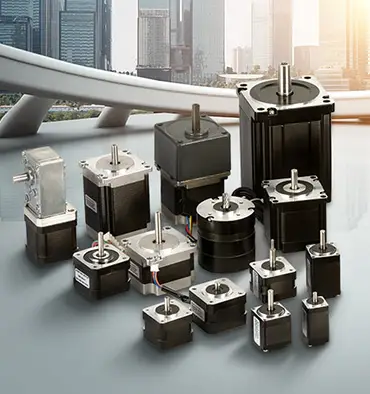What are the common problems with stepper motors?
A stepper motor is an electric motor that converts digital signals into precise rotary motion. Unlike conventional DC motors, which rely on continuous rotation to perform their work, stepper motors move in small, precise steps of rotary motion through specific angular displacements. Stepper motors are usually reliable and robust, but several common problems can occur over time.
- Stall or skip: If the stepper motor is overloaded or the motor driver does not supply enough current to the motor coil, the stepper motor may stall or skip. This can result in reduced performance and accuracy from the motor.
- Overheating: Stepper motors may overheat if they are operated at high speeds or under heavy loads for extended periods of time. Overheating can damage the motor or motor driver and may result in reduced performance and reliability.
- Noise and Vibration: Stepper motors can generate noise and vibration during operation, especially at higher speeds or under heavy loads. This can be caused by resonance or mechanical vibration in the system and can lead to reduced performance and reliability.
- Electrical Interference: Stepper motors are susceptible to electrical interference from other components in the system, which can cause the motor to operate abnormally or lose steps. This is particularly problematic in systems with high electromagnetic interference (EMI) or radio frequency interference (RFI).
- Position drift or inaccuracy: Over time, stepper motors may experience position drift or inaccuracy, especially when the motor is operated under heavy loads or in harsh environments. This can lead to a reduction in motor performance and accuracy.
- Wiring or connection problems: Stepper motors may experience wiring or connection problems, such as loose or damaged wires or connectors, which may cause intermittent or erratic behavior of the motor.
- Mechanical problems: Stepper motors may experience mechanical problems, such as misaligned or stuck motor shafts, which can lead to reduced motor performance and reliability.
Conclusion
To avoid these common problems with stepper motors, it is important to properly match the motor and motor driver to the application requirements, to operate the motor within its specified range, and to regularly inspect and maintain the stepper motor and related components to ensure proper operation.


Leave a Reply